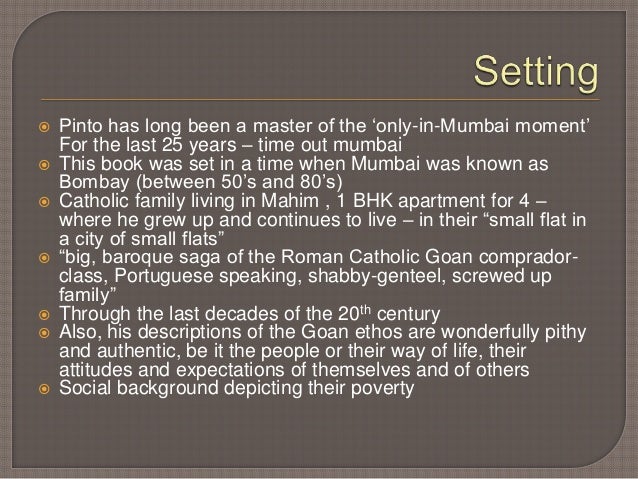
I never feel like having conversation with someone who quotes”. “That sounds suspiciously like a quotation,” she said. “Did it leave a God-sized hole in your life?” She uses words interestingly and often there is a hint of trapped intelligence deep inside her: He structures the book around letters written by Em, words spoken by Em, and a lot of times the narrative is moulded on how and where Em’s whimsies take you when you talk to her. Pinto’s design relies heavily on conversation. But Em is immensely fascinating, a Prospero high on nicotine. And such is the concern of Jerry Pinto’s book. What went on inside his mother’s head is the soul concern of the book. That is how Handke looks at it, and that is how he tries to make us look. What she does to herself is not the result of a moment’s frenzy, but a culmination of slowly accumulating pain over the years.

Filled with extreme hardship and disillusionment, Handke’s mother had spent her life trying to become, a word he carefully uses, an “individual”. The result is an interesting little book titled “A sorrow beyond Dreams”. His reasons were: “I know more about her and how she came to her death than any outside investigator who might, with the help of a religious, psychological, or sociological guide to the interpretation of dreams, arrive at a facile explanation…”. When Peter Handke’s mother committed suicide, he took it on himself to record her life. When you go back to Bombay, I will write”. She usually waves it off with a smile: “when you are with me, I will talk. I bought her a diary: write anything that comes into your head, about your life, about your childhood, about your health, anything. But what is going on in her head when she puts aside her usually cheerful self on such rare occasions? I have asked her to write. It could be due to her body already feeling spent in her mid-fifties. But when it is pronounced it makes her look sad. But once in a blue moon, when in a reflective mood, mostly when I visit her in our hometown and when we sit at the dining table after everyone in the family sleeps, she allows a hint of regret or something of its ilk to drop during our conversations. She has always been what I was supposed to fill on innumerable forms over the years: a housewife. Mine has spent a better part of her life in the kitchen and managing our daily routines, limiting the many possibilities life could have offered. Having lived my formative years in a middle-class family, I look at mothers in a certain way. You need not call her “aap” and often use “tu”, more intimate in comparison, and it removes the gap that “aap” presupposes. In Gujarat, where I grew up, it is a common practice to not use a respectful address for one’s mother.

She discovered with great delight that one does not love one’s children just because they are one’s children but because of the friendship formed while raising them: Marquez writes in Love in the time of Cholera.


 0 kommentar(er)
0 kommentar(er)
